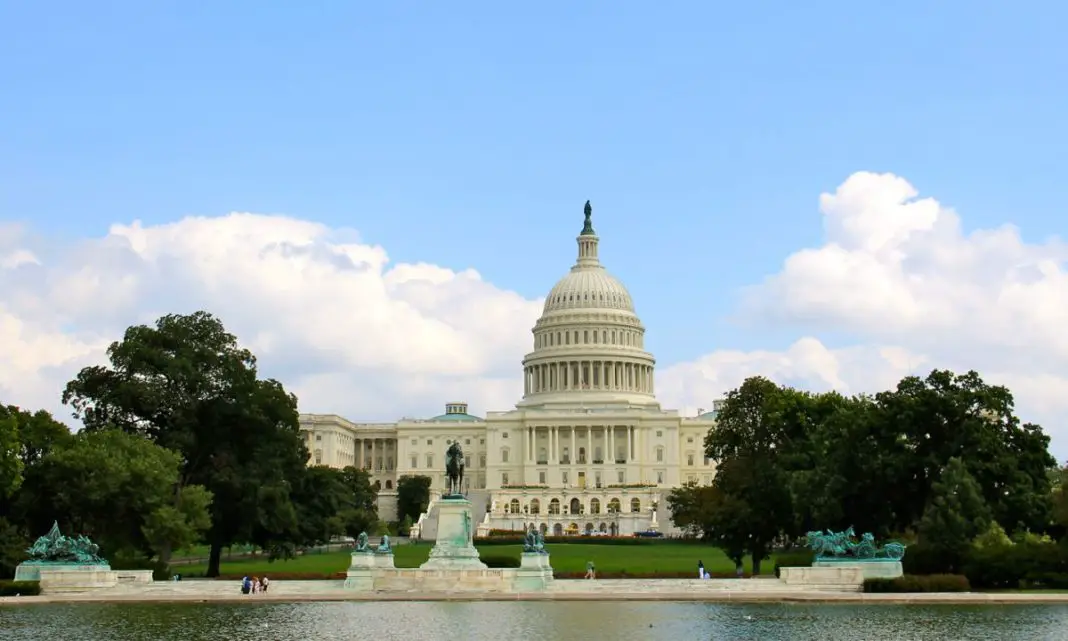In a surprise development, several fiscally ultra-conservative Republicans in the U.S. House of Representatives, who are known for derailing federal spending efforts, have voted on a bill that would fund the government beyond the March deadline and would extend the tax cuts for Americans from Donald Trump’s first term. The 2017 Trump tax cuts were set to expire this year, which included a much larger standard deduction for both singles and married couples.
After more than ten hours of intense deliberations, the House Budget Committee voted late Thursday to advance a $4.5 trillion budget resolution. The plan, which passed along party lines, outlines significant funding for President Donald Trump’s policies on border security, defense, and energy, while also extending the 2017 tax cuts for another decade.
However, critics warn that the proposal could add at least $2 trillion to the federal deficit, even if the nation experiences robust economic growth. House Budget Committee Chair Jodey Arrington, R-Texas, hailed the resolution as “a blueprint for restoring America’s security, prosperity, and leadership in the world.” He stressed that the budget was more than just a financial document, emphasizing that it aims to “reconcile the difference between the American people’s interest, expectations, and values, and a federal government that has lost its way, forgotten who it serves, and too often has failed to faithfully, fairly, and efficiently execute the law of the land.”
The proposal includes a major fiscal move: raising the national debt ceiling by $4 trillion, which would allow the government to borrow more to finance its operations. The resolution also calls on congressional committees to identify at least $1.5 trillion in spending cuts over the next decade, or approximately $150 billion in annual savings. Despite this, the plan also authorizes a $300 billion boost in mandatory spending, allocating funds primarily to the Armed Services, Homeland Security, and Judiciary committees.
“Fiscal Hawks” Get On Board And Pressure U.S. Senators To Pass Spending Bill
Rep. Chip Roy, R-Texas, a vocal fiscal conservative, lauded the proposal as “a giant step forward” in curbing government spending and inflation. “I am proud of what the chairman has put forward. I believe that is responsible, and I believe it is a balance of what we’re supposed to do,” Roy stated. “Our government spends too much, and we have to stop that. And the American people deserve to have more money in their pockets. This budget accomplishes both of those two objectives.”
The proposal saw the passage of a Republican amendment to allow for potential adjustments to the spending cuts floor and the tax impact cap, a concession that helped win over fiscal hardliners like Roy. However, none of the amendments proposed by House Democrats were incorporated into the final resolution.
Pre-COVID, the government spent $4.4 trillion.
Six years later, we are spending $7 TRILLION.
For this republic to continue standing, this level of spending from our government must decrease. pic.twitter.com/Up6PDmRJQl
— Rep. Chip Roy Press Office (@RepChipRoy) February 13, 2025
Democrats, on the other hand, were swift to condemn the budget, calling it “the Republican rip-off.” With approximately $880 billion of the $1.5 trillion in cuts coming from the Energy and Commerce Committee, key social programs such as Medicaid and SNAP could face significant reductions or changes.
“This is a betrayal of the American middle class. This is a betrayal, actually, of the very people who helped make Donald Trump president,” said Ranking Member Brendan Boyle, D-Penn. “Nothing in here whatsoever will bring costs down. In fact, by increasing the deficit, increasing the debt, by including massive tax cuts, all of that will spike inflation.”
The national debt, currently standing at over $36 trillion, grew by $2.5 trillion in fiscal year 2024 alone and is projected to reach $40.9 trillion by 2027. Despite these figures, Arrington defended the budget, arguing that opposing the proposal would lead to tax hikes on American families. According to data from the House Ways and Means Committee, if the 2017 tax cuts expire, the average taxpayer would face a 22% increase in taxes and a drastic reduction in their guaranteed deductions.
Despite passing out of the House Budget Committee, the resolution faces a significant hurdle in the Senate. Senate Republicans, frustrated by delays in negotiations, have introduced their own budget proposal. Led by Senate Budget Committee Chair Lindsey Graham, R-S.C., the Senate’s version totals $342 billion and includes funding for the border and military, but it separates the tax cuts extension into a future bill.
This new Senate resolution, which was approved in committee along party lines on Wednesday, marks a key point of contention between the two chambers. The House and Senate must reconcile their differing versions of the budget before proceeding with the reconciliation process and enacting any legislation to implement the proposed spending and tax changes.
With the March 14 deadline for government funding looming, lawmakers face mounting pressure to settle on a final appropriations bill. Disagreements over the budget’s top-line number could further delay the process, leaving the nation at risk of a government shutdown if Congress fails to act in time.
What do you think of the U.S. House Spending Bill? Should The U.S. Senate pass a bill to extend the Trump tax cuts now? Let us know what you think in the comments below.


Yes. Although I personally DON’T like the increased standard deduction I will support the overall bill.
n8l4IHWjyjK
i9HY71lUYtn
MvEmPeqCxBk
2QenqgheqVu
W3YLzx2yxH9
rJl9YQUekRS
GCVtYlQ9frf
crxdGNdeLQq
r86sE2IrQjh
TD2DkwQuqoJ
LrfdGnkuSrh
AhkjR80gKCZ
trxExPN4XYy
NCcVpVkCfX1
sD2X8EU7Fi9
TWFQ0yQnTrx
4gzANjpyBBb
Cxr2iXQRbHF
fLNFDqRLfqQ
xog3uVgHAsN
wQ0vsGtFLQ7
TdYeM6CjLmS
SNFl6SVbmWc
XMIA79WMTNK
L7FkNBfTbxg
roTzMbI5RJ8
qpFQZjp40Bs
sI5onaWnRu8
GnPN6sFHdjW
96XXjUJrPYX
5jTQQqEJf70
unYOsO4ugjh
0CuvP61RFML
VOhuJkvqjCq
ziwcpJBcwod
V4Heu4PXHIU